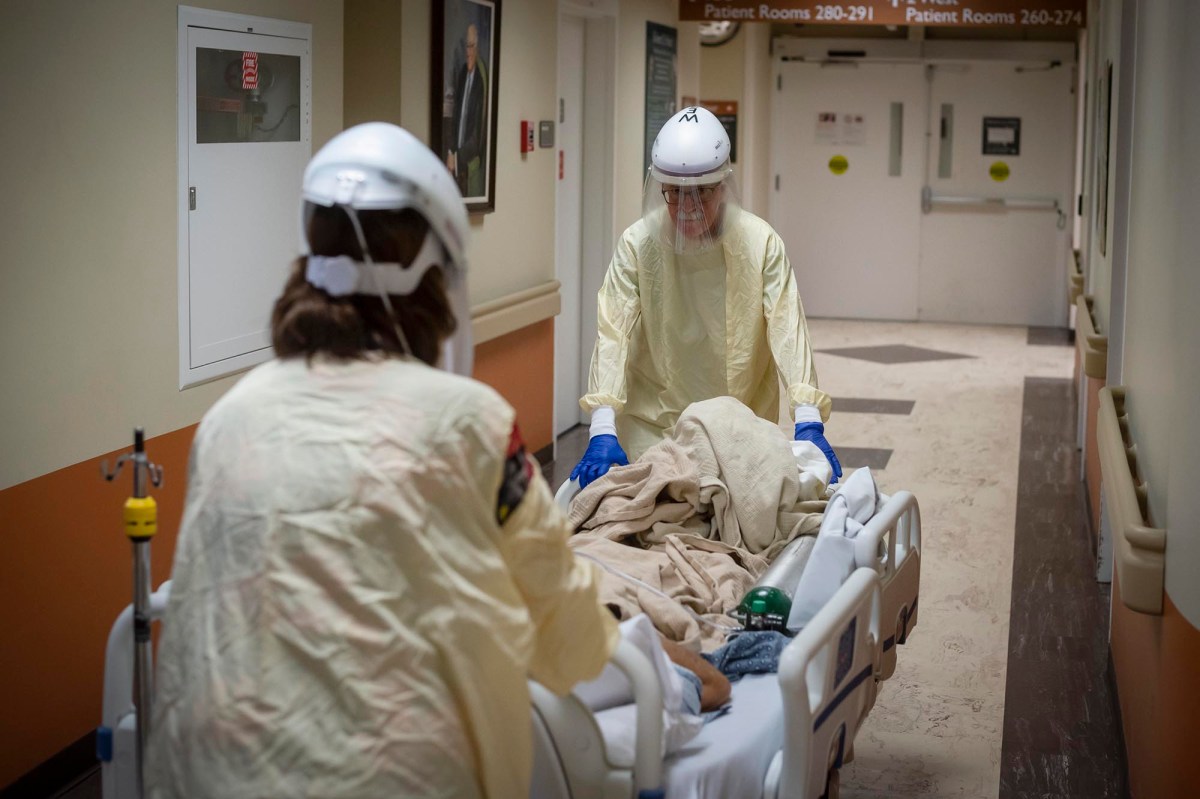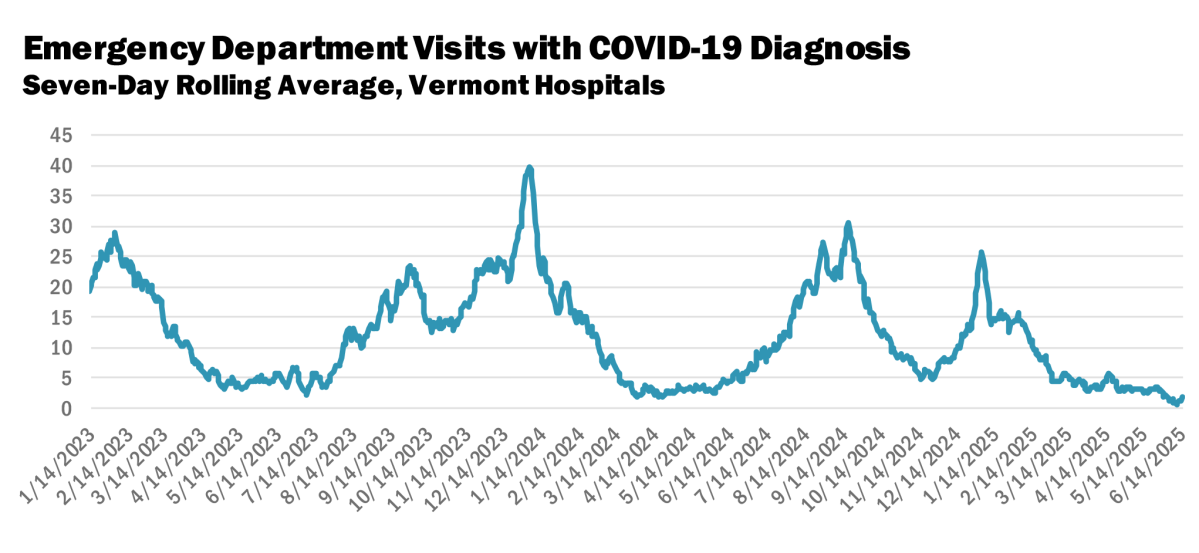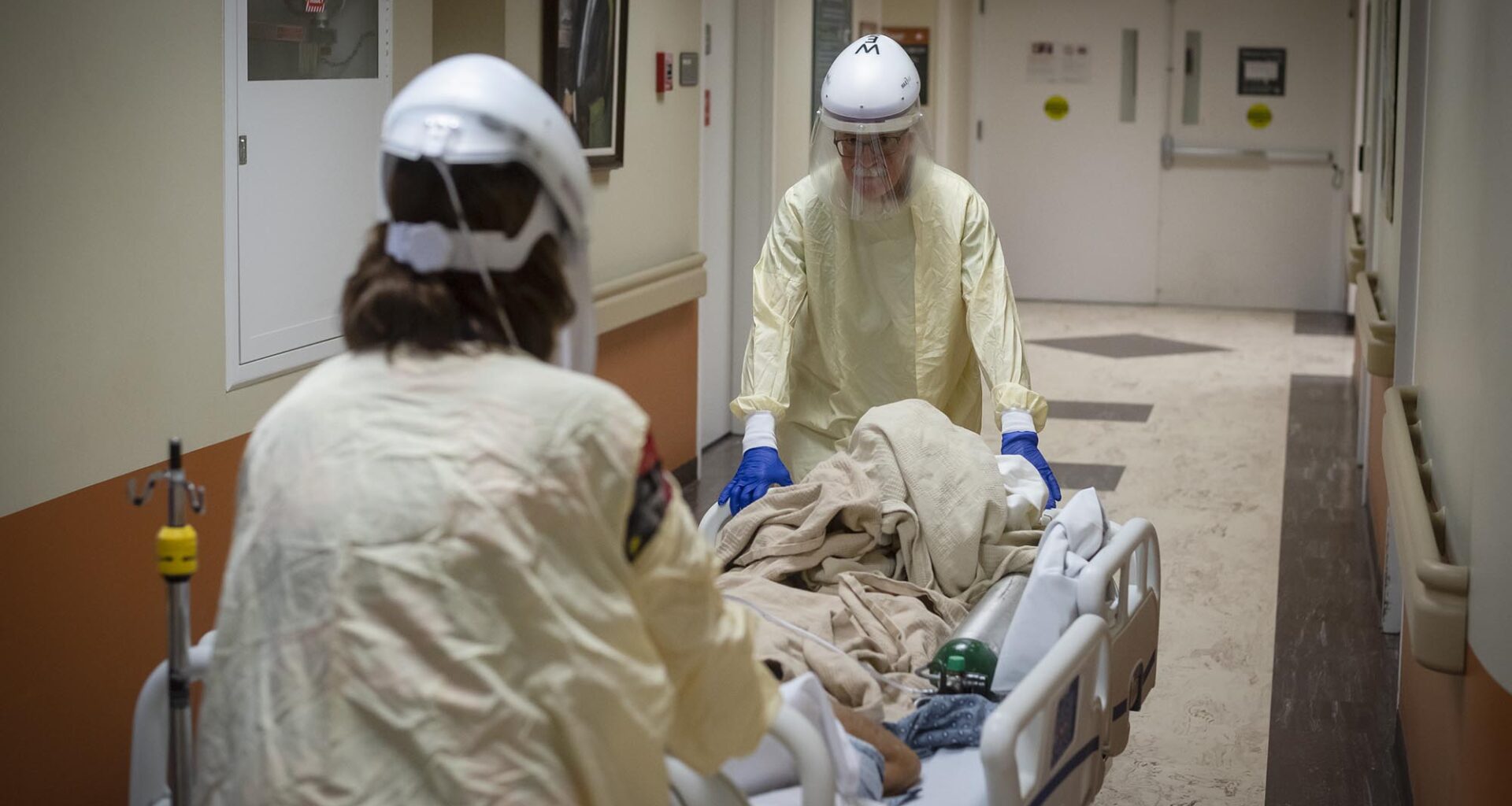 Health care workers wheel a Covid-19 patient through a hallway at the Southwestern Vermont Medical Center in Bennington o, Dec. 13, 2021. File photo by Glenn Russell/VTDigger
Health care workers wheel a Covid-19 patient through a hallway at the Southwestern Vermont Medical Center in Bennington o, Dec. 13, 2021. File photo by Glenn Russell/VTDigger
The number of emergency room visits for Covid-19 in Vermont hit zero multiple times over the past week, “at or nearing” a historic low for that indicator, the Department of Health reported Wednesday.
The health department first reported a drop in Covid-19 hospital visits in its weekly surveillance report. Epidemiologist John Davy confirmed via email there have been a few recent days with no emergency room visits, with the rolling average around one.
He wrote that overall hospitalizations for the disease, which includes Vermonters who have been in the hospital with Covid-19 for days or weeks, have not dropped to zero. But the number of current patients has been in the “low single digits” in recent weeks.
In past years, the period of late spring and early summer has been marked by low rates, followed by a rise in the late summer into early fall. Davy wrote it “remains to be seen” if that pattern will reappear in the coming months.
“There have been recent outbreaks in Long-Term Care facilities, so there is clearly some amount of COVID circulating,” he wrote.
 Chart via the Vermont Department of Health
Chart via the Vermont Department of Health
The state health department also reported it has detected the presence of a new Covid-19 variant, NB.1.8.1. The variant has made international headlines for causing severe sore throats nicknamed “razor blade throats.” But it has not been found in Vermont in large numbers, Davy wrote.
“There is no clear indication that NB.1.8.1 is associated with greater disease severity,” he wrote. “Preliminary lab studies suggest that vaccines will be effective against severe outcomes from this strain.”
The future of vaccines themselves are still uncertain, however. Covid-19 vaccines tailored to the dominant strains of the virus have typically become available in early fall, along with other seasonal vaccines like influenza. But U.S. Department of Health and Human Services Secretary Robert F. Kennedy Jr., has a long history of anti-vaccine activism.
Kennedy recently dropped the recommendation for pregnant people and healthy children to receive the vaccine and dismissed all 17 members of the U.S. Centers for Disease Control and Prevention’s vaccine advisory panel, replacing them with eight of his own appointees, some of whom have previously objected to the Covid-19 shots. The panel is slated to hold its first meeting June 25.
